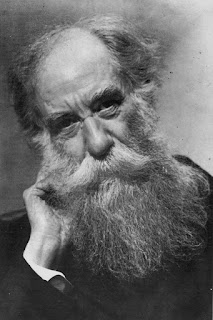Composer: Charles Koechlin
- Sonate pour violon et piano, Op. 64
- Quintette pour piano et cordes, Op. 80
Quintette Syntonia
Romain David, piano
Stéphanie Moraly, violin
Thibault Noally, violin
Caroline Donin, viola
Patrick Langot, cello
Date: 2018
Label: Timpani
----------------------------------------------------------------------------
Last year marked the 150th anniversary of Charles Koechlin's birth. To mark the occasion, the French label Timpani have issued this recording of the Violin Sonata and the Piano Quintet. I'm sad and perplexed as to why this composer is so undervalued today. Having said that, SWR Music have just reissued, in the form of two boxed sets, their discography of the composer's orchestral music and chamber music. Neither opuses on this disc are featured in the chamber music box, however. Of the two works, it is the Piano Quintet, which is the highlight for me. It's a masterpiece, and deserves to be heard and played more often.
Koechlin only wrote one Violin Sonata and he dedicated it to his teacher Gabriel Fauré. It's cast in four movements, the finale being extended. Written in the early days of World War 1, the composer was determined that these dark days were not echoed in the music. Rather he preferred to escape into "an unreal world of fairy tales and dreams', settling in "an enchanted forest, in an atmosphere of tales and legends". He subtitled it "La nuit féerique". It was premiered at a concert of the Société Musicale Indépendante on May 18, 1917, with Yvonne Giraud taking the violin part and with Jeanne Herscher-Clément at the piano. Koechlin's publisher Jacques Durand attended the performance, but didn't think the unconventional format would be commercially viable, so it was taken up by Éditions Maurice Senart in 1921. Unusually it begins with a slow movement which radiates calm and serenity. The music is set in the fairy forest and, for me, the music transports the listener into a world of fantasy, wonder and discovery. After a few bars of tranquil introduction, a second movement Scherzo depicts the dancing of the fairies and elves. A magical Nocturne follows, evoking night in the forest. The stillness conveys an overwhelming feeling of warmth, comfort and contentment. Moraly's and David's striking pianissimo playing in the closing bars is seductive. The finale's structure I found very unorthodox. The central section is rather wistful and is tinged with regret. However, at the end Koechlin ups the rhetoric and the work ends triumphantly. The style of the Sonata is impressionistic and a positive factor is that both performers achieve some exquisite pastel shades throughout.
The Piano Quintet. Op. 80 was written between 1917 and 1921, yet the earliest sketches for the work date as far back as 1908 and 1911. There's no doubt that the dreadful events of World War 1 are echoed in this mainly dark and sombre score. The theme is resurrection after adversity, the triumph of life and joy over sorrow. It's a theme Koechlin carried forward into his Symphony No. 2 and the orchestral works Le Buisson ardent and Le Docteur Fabricius. Its four movements are titled– The Obscure Wait of What Shall Be; The Enemy Attack – The Wound; Consoling Nature; Finale – The Joy. The powerful opening movement tells of pain, anguish and suffering. The music is characterized by atonal and chromatic leanings. The second movement is a scherzo in all but name. Harsh dissonances convey angst and have a compelling urgency. A slow epilogue eases the tension in the closing pages, but there's nothing left but gloom and despair. In the Andante 'the voice of nature speaks to the poet'. Time almost stands still and an air of mysticism shrouds the stillness and calm. The finale is all about celebration and joy, with the movement building up to a thrilling climax of energy and vigour.
The Quintet was not premiered until April 1934, and this was its sole performance during the composer's lifetime. It had to wait until 1974 for publication. The booklet contains a note by Otfrid Nies, one time concertmaster of the Kassel Opera Orchestra and leader of the Ensemble Charles Koechlin. He discusses research he did into the work prior to a performance in the mid-1980s. He discovered that many errors had crept into the score over the intervening years. He’s since painstakingly corrected the score, a true labour of love. A new edition was scheduled for publication in late 2017 to coincide with the 150th anniversary of the composer's birth.
The Quintette Syntonia were founded in 1999, and it is the only existing piano quintet in France. Its personnel are alumni of the Paris Conservatory. Their performances on this captivating disc are fired with enthusiasm and consummate musicianship. I could think of no better advocates for these alluring scores. These are performances, blessed with a fine acoustic and first rate recording, with instrumental balance spot on.
-- Stephen Greenbank, MusicWeb International
----------------------------------------------------------------------------
Charles Koechlin (27 November 1867 – 31 December 1950) was a French composer, teacher and writer on music. Koechlin was enormously prolific. He was highly eclectic in inspiration and musical technique, and his music was distinct from his contemporaries. He was a passionate enthusiast for such diverse things as medieval music, The Jungle Book of Rudyard Kipling, Johann Sebastian Bach, film stars (especially Lilian Harvey and Ginger Rogers), traveling, stereoscopic photography and socialism. Despite his lack of worldly success, Koechlin was apparently a loved and venerated figure in French music.
http://en.wikipedia.org/wiki/Charles_Koechlin
http://en.wikipedia.org/wiki/Charles_Koechlin
----------------------------------------------------------------------------
FLAC, tracks
Links in comment
Enjoy!



Choose one link, copy and paste it to your browser's address bar, wait a few seconds (you may need to click 'Continue' first), then click 'Skip Ad' (or 'Get link').
ReplyDeleteIf you are asked to download or install anything, IGNORE, only download from file hosting site (mega.nz).
If MEGA shows 'Bandwidth Limit Exceeded' message, try to create a free account.
http://lyksoomu.com/vO64
or
https://uii.io/QlFqYxkaC
or
https://exe.io/YbDAH